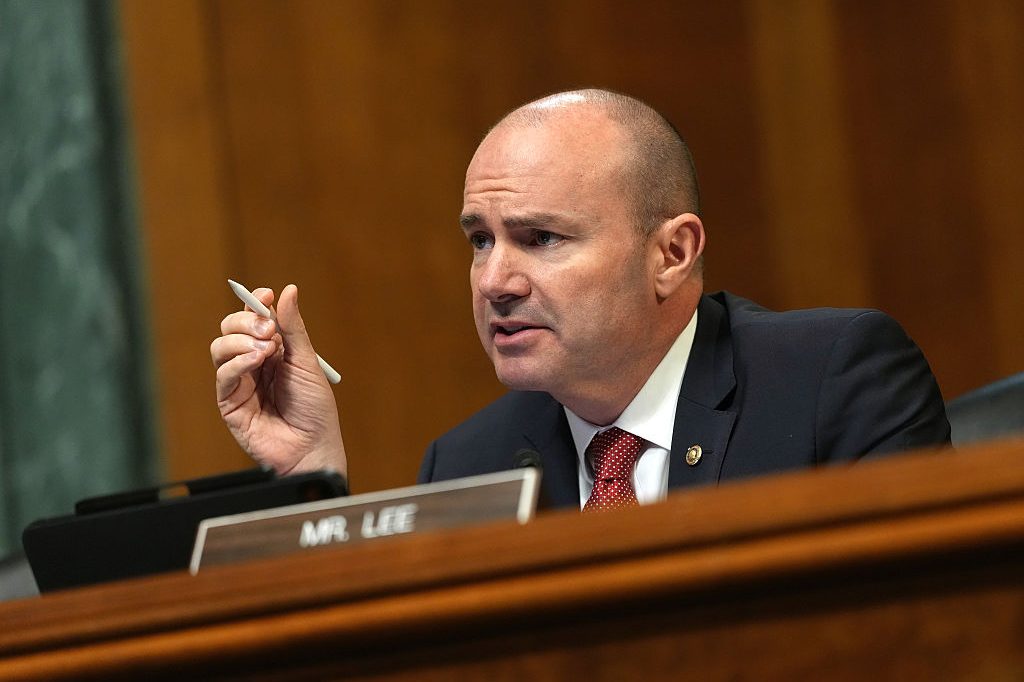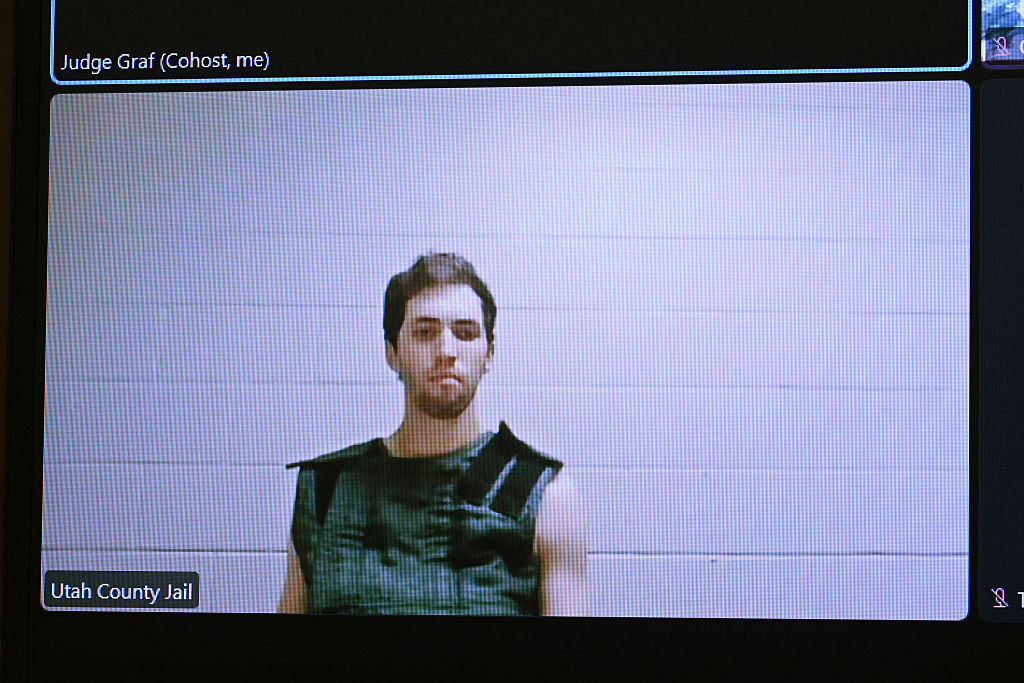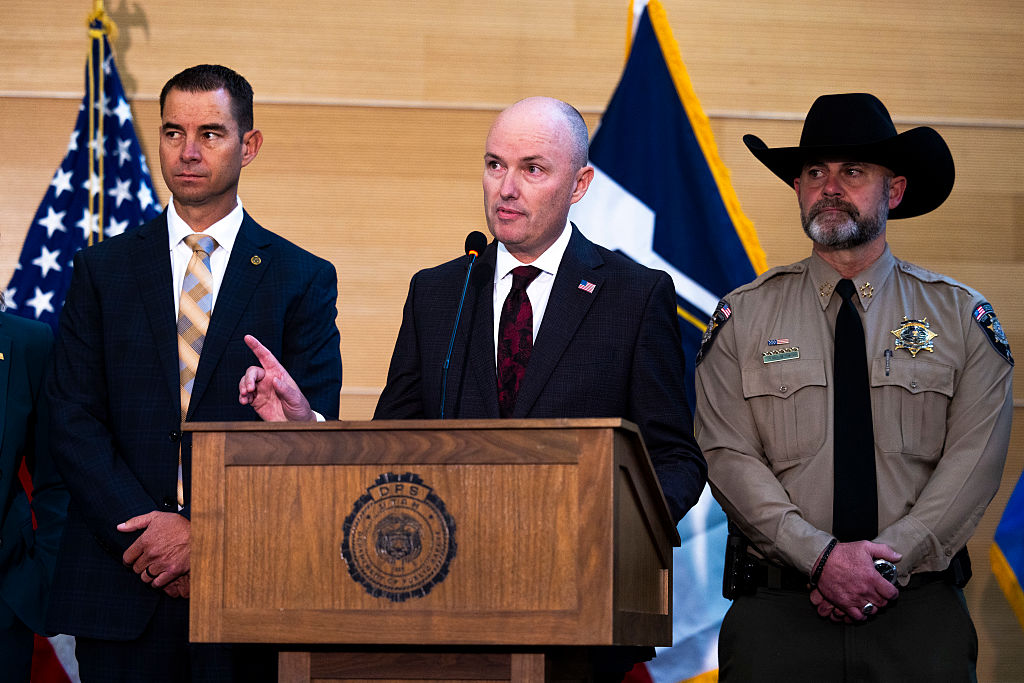Politico recently published a piece titled “Mike Lee Can’t Stop Throwing Social Media Grenades. His Church Isn’t Happy.” It cast Senator Lee as a liability to his own religion and positioned him against the church. The entire article hinges on a premise that is misleading at best and manipulative at worst: that Lee, being a member of the Church of Jesus Christ of Latter-day Saints (the Mormon church), must conform to a certain political tone or risk disapproval from “his Church.” But this article isn’t reporting on some objective religious rift. It’s a political attack dressed up in ecclesiastical robes.
The author of the piece, Samuel Benson, is himself a member of the LDS church. The article’s headline would be more honest – though less subtle – if it read “Our Church Isn’t Happy.“ The plural possessive would better reflect what seems to be the author’s real agenda: positioning the church as aligned with his own moderate-to-left politics while implicitly portraying Mike Lee as a loose cannon who’s embarrassing the saints.
The idiosyncrasies of Utah politics figure prominently here. Within the state, there’s a coterie of political activists – establishment Republicans, ex-Republicans and moderate Democrats – who resent Lee’s brand of constitutionalism and willingness to challenge business as usual. This is the so-called East Bench set, in reference to the affluent, elite neighborhood where many of the activists live.
The East Bench set wants Lee out of DC, and articles such as Politico’s play into that plan. Because so many members of the state are members of the LDS church, the East Benchers believe they can turn the tide against Lee by portraying him as out of step with his fellow churchgoers. But, as Lee’s chief strategist Dan Hauser puts it, “Mike has an excellent relationship with the church.” Politico’s framing relies on implication and innuendo and an anonymous whisper campaign.
Reading the Politico article, you’d think the church is engaged in a slow-motion excommunication or ostracization of Lee. But the church does not make public rebukes of politicians. It’s generally politically neutral and only rarely speaks about specific legislation. And it doesn’t endorse candidates.
Politico repeatedly paints Lee as an embarrassment to “his Church.” But the leaders of the church haven’t issued a single statement condemning the Senator. The church explicitly declined to comment on the Politico article. The only church figure with something resembling ecclesiastical authority cited (anonymously) against Lee is an emeritus general authority. This is a former high-ranking spiritual figure, but his emeritus status means he does not speak for the church in any official capacity. There is simply no ecclesiastical consensus against Lee.
For his part, Lee does not pretend to speak for the church or issue grand statements about churchwide political stances – which is precisely what the Politico article does by framing Lee’s church as unhappy with him. If anyone is misrepresenting the church here, it’s Politico.
The article also invokes President Russell M. Nelson – the leader of the church – and his counsel to be “peacemakers” and bridgebuilders. If you read Politico, you’d be led to understand this means that public figures such as Lee must be bland, conciliatory and nonconfrontational. But peacemaking isn’t passivity and it’s not appeasement. Hauser put it succinctly: “There are many faces to peacemaking.” Sometimes, peace is built by clearing debris and confronting corruption. Sometimes, peace requires noise – even righteous indignation.
Even if there are figures inside the church’s Salt Lake headquarters who are worried about Lee’s persona, that does not amount to condemnation. Disagreement over tone and rhetoric is not the same as doctrinal or even behavioral disapproval. Nor is political divergence evidence of spiritual failure.
The article seems more concerned with Mike Lee’s social-media account than his actual record. It wants to portray him as a troll, not a statesman. But the senator’s online presence is an extension of his constitutionalism. He has a firm grasp of principles of limited government and religious liberty – all of which the church itself has spoken about favorably from its highest authoritative level.
There’s a temptation in LDS culture to tie political temperament to doctrinal correctness – to assume that being nice is the same as being right, or that moderatism is the same as morality. But that’s a confusion of categories. That confusion isn’t just theological – it’s political, and it’s being exploited. This was never about a divide between Lee and his church. It’s about politics, power and a press that’s eager to police anyone who won’t play by its rules.


























Leave a Reply